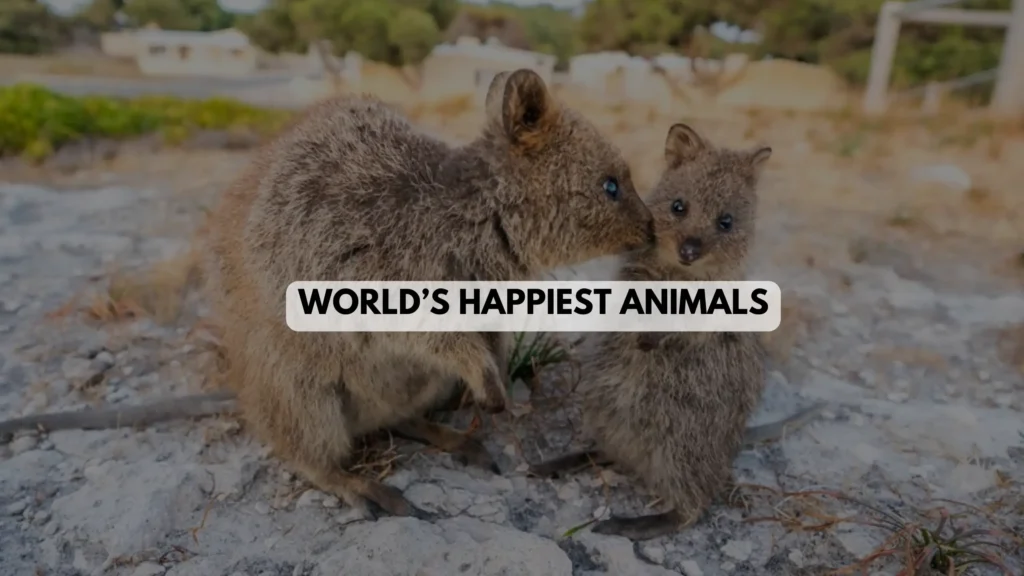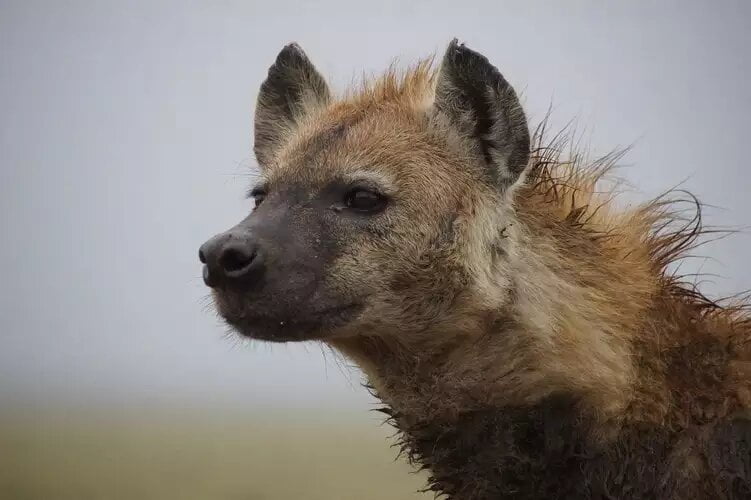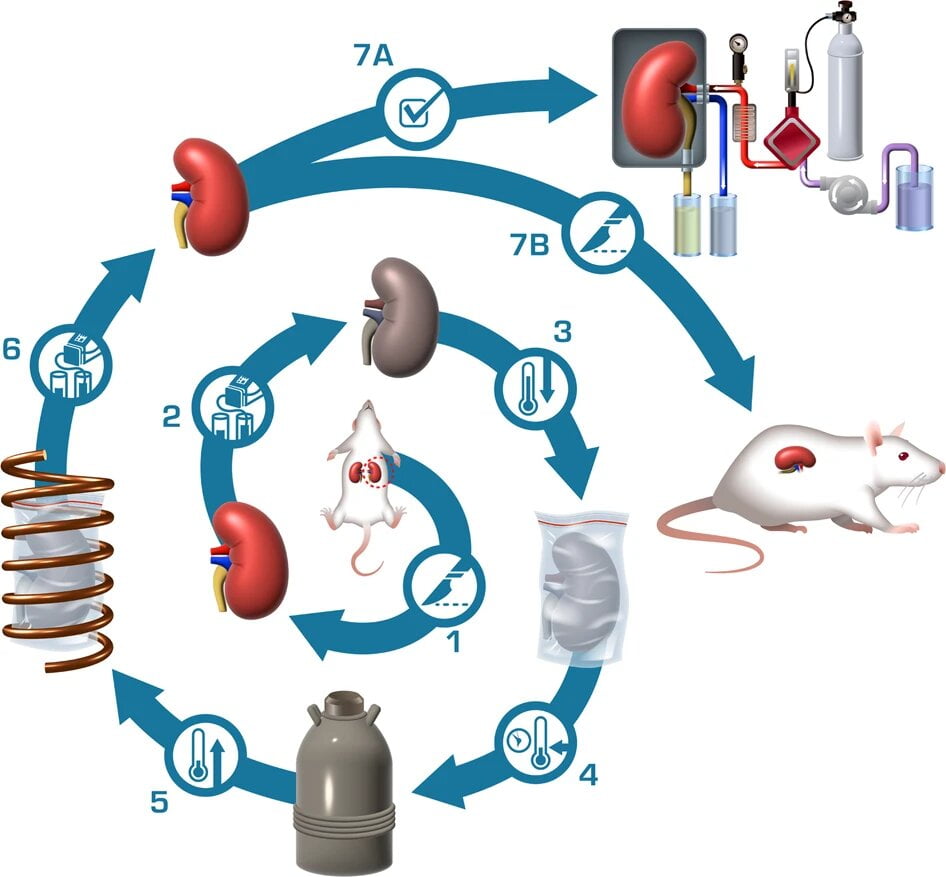Imagine a world where smiles weren’t just human. Picture creatures whose every bounce, chirp, and gurgle radiates pure joy. Believe it or not, such a world exists, teeming with animals whose happiness is as infectious as their antics. Do You Know These 4 World’s Happiest Animals?
While definitively measuring animal emotions remains a scientific pursuit, observing their behavior, social interactions, and adaptations offer priceless insights into their emotional landscapes.
So, buckle up, animal lovers, as we embark on a journey to meet the world’s happiest animals, the grinners, the giggleboxes, the creatures whose zest for life is simply contagious!
4 World’s Happiest Animals
The Quokka: The Smiling Superstar
Hailing from the sun-drenched shores of Australia, the quokka reigns supreme as the poster child of animal happiness. This adorable marsupial, often mistaken for a miniature wallaby, possesses an uncanny ability to look perpetually amused.

Their round faces, permanently curved into what appears to be a cheeky grin, have earned them the moniker “the happiest animal on Earth.” Their playful nature, bouncing through life with unbridled enthusiasm, further cements their claim to happiness and fame.
Whether munching on leaves, sunbathing on the beach, or engaging in playful wrestling matches, quokkas exude an aura of carefree contentment that warms the heart.
The Bonobo: Laughter in the Rainforest
Deep within the lush embrace of the Congo rainforest resides another contender for the “happiest animal” title: the bonobo. These remarkable primates share 98.7% of their DNA with humans, and their emotional intelligence shines through in their interactions.
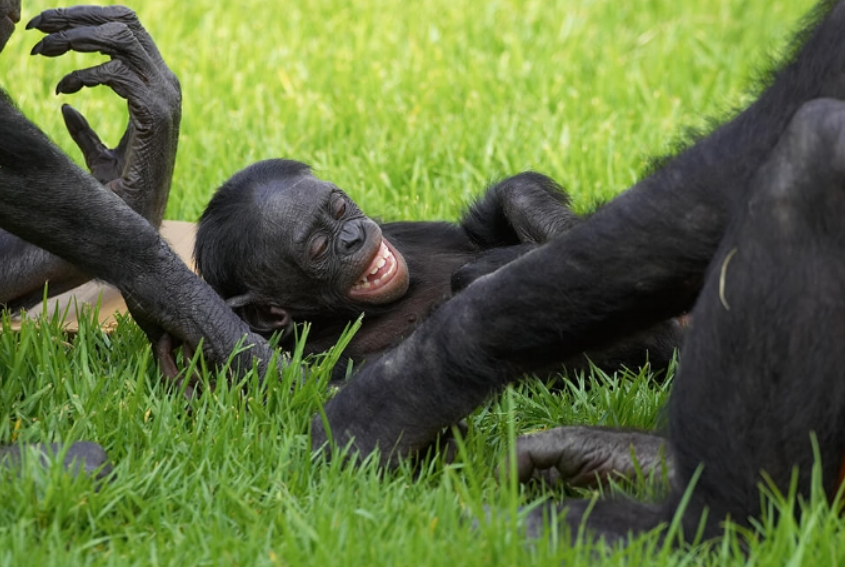
Bonobos are famed for their playful, almost giddy demeanors. Their days are filled with laughter, tickling, and playful wrestling, often erupting into spontaneous bouts of joyful vocalizations.
Studies have even shown them exhibiting empathy and compassion towards distressed individuals, offering comfort and reassurance. Witnessing a group of bonobos frolicking in the forest is a testament to the unbridled joy that can exist in the animal kingdom.
The Dolphin: Masters of Aquatic Mirth
The ocean depths hold their treasure trove of happy creatures, and dolphins must be counted among them. These intelligent mammals possess a complex social structure built on playfulness and cooperation.
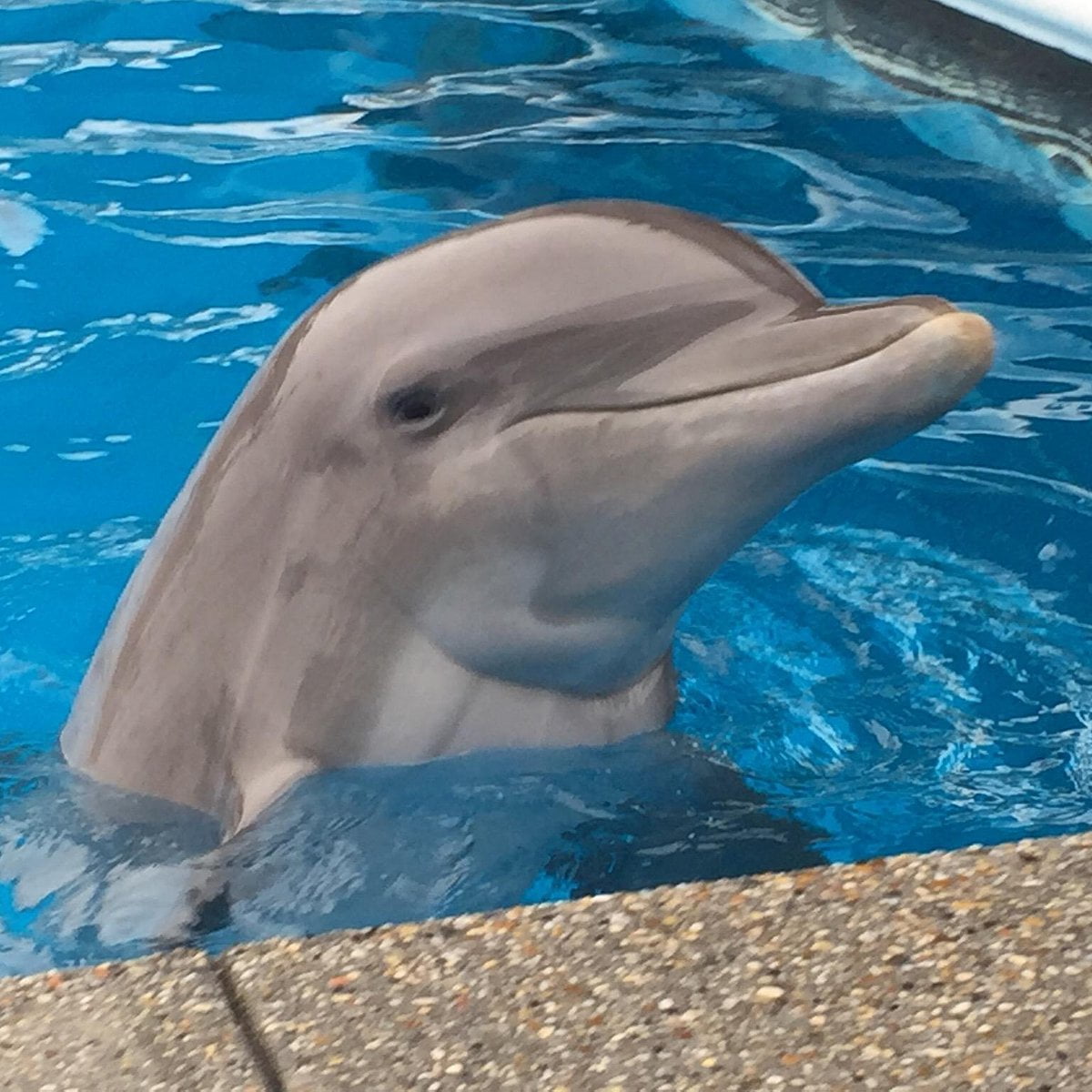
Their acrobatic leaps, playful nudges, and signature whistles communicate a sense of boundless enthusiasm for life. Dolphins form strong bonds within their pods, engaging in cooperative hunting, raising their young together, and offering comfort and support to injured individuals.
Watching a pod of dolphins frolic in the waves is a mesmerizing display of aquatic joy, reminding us of the deep emotions that bind these remarkable creatures.
The Capybara: Chill Kings of the Marsh
Move over, lions, the true kings of the savanna when it comes to laid-back happiness are the capybaras. These gentle giants, resembling oversized guinea pigs, radiate an aura of Zen-like calm.
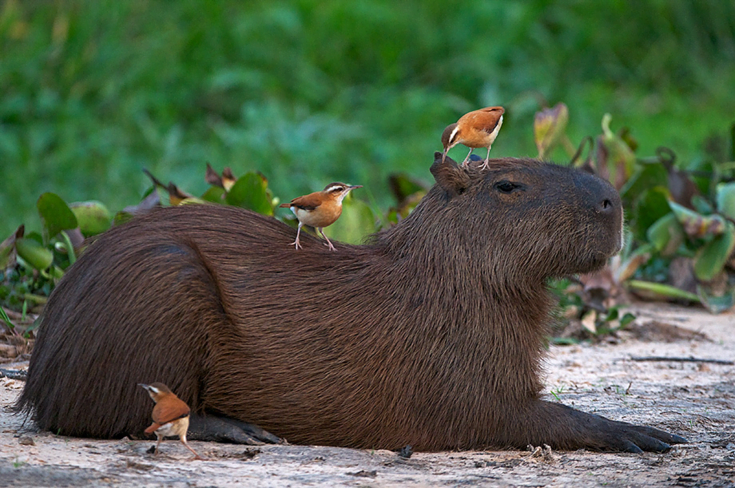
Their days are spent basking in the sun, munching on aquatic plants, and socializing with their large, extended families. Capybaras are famously non-confrontational, readily sharing their space with other animals, even forming unlikely friendships with creatures like monkeys and caimans.
Witnessing a herd of capybaras lounging peacefully in the water, their serene expressions mirroring the stillness of the marsh is a testament to the simple pleasures that bring them joy.
Beyond the Grin: Understanding Animal Happiness
Attributing human emotions to animals, particularly complex emotions like happiness, requires caution. However, observing their behavior, social interactions, and adaptations provides valuable insights into their emotional well-being.
Animals with strong social bonds, playful behaviors, and low levels of stress hormones often exhibit signs of contentment and joy. Additionally, species that engage in activities, like playing or exploring, that fulfill their instincts appear to experience genuine enjoyment.
Beyond the Big Five: Uncovering Hidden Gems of Happiness
While the quokka, bonobo, dolphin, capybara, and others have earned their spots in the “happiest animal” spotlight, countless other creatures radiate joy in their own unique ways.
The playful antics of chimpanzees, the synchronized swimming ballets of penguins, the energetic songbirds filling the air with melody – each species expresses its happiness in its distinct way.
So, take a closer look at the animal world around you. You might be surprised by the hidden pockets of joy waiting to be discovered.
Protecting the Grin: Ensuring Animal Well-being
Understanding and appreciating animal happiness goes hand-in-hand with protecting their well-being. Encroaching habitats, human-animal conflict, and species exploitation can all negatively impact an animal’s emotional state and lead to stress, anxiety, and even despair. As guardians of this shared planet, we have a responsibility to create a world where all creatures, from the grinning quokka to the playful penguin, can experience the joy of a life well-lived.
Here are some ways we can contribute to animal happiness:
Conscientious Consumerism
Make informed choices about the products we consume and ensure they are sourced from companies that prioritize ethical practices and animal welfare. Look for certifications like “Certified Humane” or “Dolphin-Safe” when buying food, clothing, and household products. Opting for plant-based alternatives, when possible, can further reduce our reliance on animal agriculture, which often poses ethical and environmental concerns.
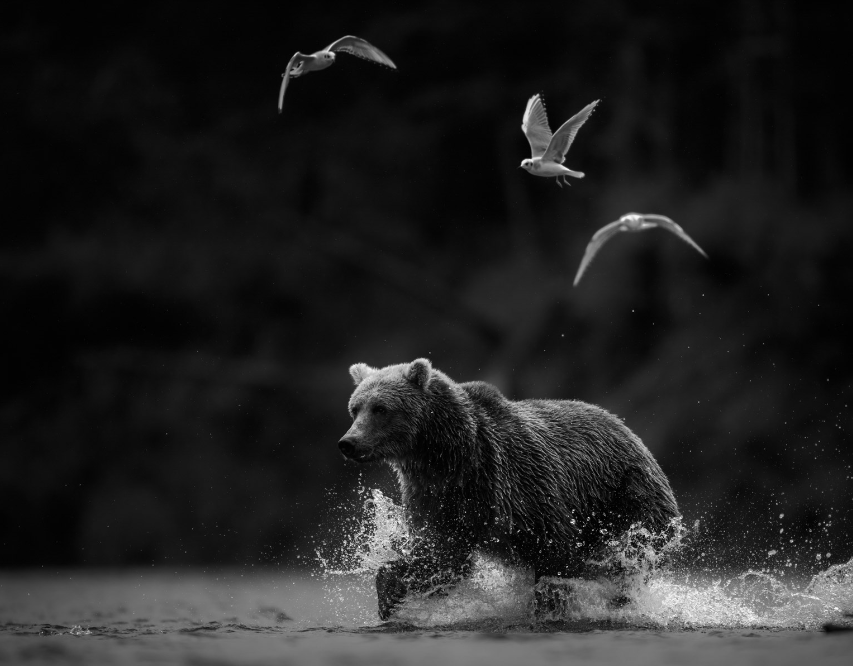
Habitat Conservation
Supporting organizations dedicated to habitat protection and restoration is crucial in safeguarding animal homes and ensuring access to vital resources. Volunteering your time or donating to reputable conservation efforts can make a tangible difference in preserving the natural havens where animals thrive.
Responsible Travel
Responsible tourism that prioritizes animal welfare over entertainment is essential. Opt for wildlife viewing experiences that prioritize minimal disruption to animals and avoid unethical practices like animal shows or interactions. Choose eco-friendly travel options and support local communities that work to conserve wildlife and their habitats.
Advocacy and Education
Raising awareness about animal welfare issues empowers individuals to make informed choices and advocate for change. Sharing educational resources, supporting animal rights organizations, and engaging in respectful dialogue can spark understanding and inspire action within our communities.
Compassionate Choices
Recognizing and respecting the inherent value of all living beings is fundamental to ensuring animal well-being. Choosing compassion in our everyday interactions with animals, whether it’s avoiding harmful products or advocating for their rights, is a powerful way to contribute to a happier animal world.
Remember, even small actions can have a ripple effect. By making conscious choices and advocating for animal welfare, we can create a world where the grins of quokkas, the laughter of bonobos, and the joy of all creatures echo through our planet.
Beyond the Individual: Embracing Systemic Change
While individual actions carry immense power, systemic change is crucial for ensuring the long-term protection of animal well-being. Supporting policies that enforce stronger animal welfare regulations, advocating for responsible agricultural practices, and holding corporations accountable for their impact on the animal kingdom are essential steps toward creating a more compassionate world.
Engaging with local and national legislators, urging them to prioritize animal welfare issues, and participating in peaceful protests and campaigns can contribute to meaningful policy changes.
Supporting independent watchdogs and advocacy organizations that hold corporations accountable for their animal welfare practices empowers consumers to make informed choices and drive systemic change.
A World Where Joy Reigns Supreme
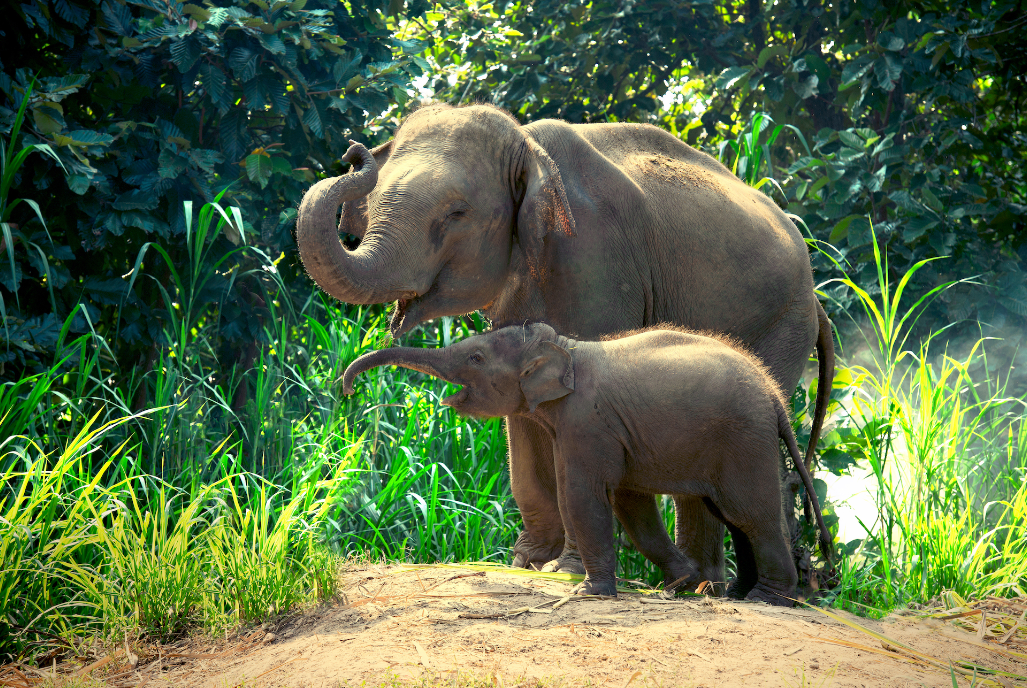
Imagine a world where animal sanctuaries replace zoos, where scientific research upholds ethical standards, and where habitat conservation ensures the thriving of all creatures. It’s a world where the infectious joy of bonobo laughter, the carefree smiles of quokkas, and the playful spirit of countless other animals are not merely fleeting glimpses but a symphony of happiness echoing across the planet.
By embracing sustainable practices, advocating for ethical treatment, and nurturing a culture of compassion, we can strive towards this vision, ensuring that the grins of the animal kingdom illuminate a world where joy reigns supreme.
Resources & References
- American Society for the Prevention of Cruelty to Animals (ASPCA): https://www.aspca.org/
- World Wildlife Fund (WWF): https://www.worldwildlife.org/
- Jane Goodall Institute: https://janegoodall.org/
- Born Free Foundation: https://www.bornfreeusa.org/
- Animal Legal Defense Fund: https://aldf.org/
- United Nations Environment Programme (UNEP): https://www.unep.org/
- Animal Welfare Institute: https://awionline.org/
Let us create a world where the grin of every creature reflects the joy of a life well-lived, a world where happiness resonates through the animal kingdom, and where our compassion echoes in the laughter of bonobos and the playful smiles of quokkas. It’s a world within reach, and our choices, our actions, and our voices hold the key to unlocking its gates.
FAQs – World’s Happiest Animals
How do we know if an animal is happy?
Accurately measuring animal happiness is challenging, as they cannot communicate their emotions verbally. However, scientists can gather clues from their behavior, physiology, and social interactions.
Animals exhibiting playful behaviors, strong social bonds, and low-stress hormone levels are often considered to be happier. Additionally, species that engage in activities that fulfill their instincts, like playing or exploring, appear to experience genuine enjoyment.
Who are some of the contenders for the “happiest animal” title?
Several animal species consistently rank high on the happiness scale, each displaying their joy in unique ways. Some of the top contenders include:
- Quokkas: These adorable marsupials from Australia are known for their permanent grins and playful nature, earning them the nickname “the happiest animal on Earth.”
- Bonobos: These intelligent primates share 98.7% of their DNA with humans and are famed for their playful, almost giddy demeanors. Their days are filled with laughter, tickling, and spontaneous bouts of joyful vocalizations.
- Dolphins: These intelligent mammals possess a complex social structure built on playfulness and cooperation. Their acrobatic leaps, playful nudges, and signature whistles communicate a sense of boundless enthusiasm for life.
- Capybaras: These gentle giants, resembling oversized guinea pigs, radiate an aura of Zen-like calm. Their days are spent basking in the sun, munching on aquatic plants, and socializing with their large, extended families.

Can all animals experience happiness?
While every species possesses its unique emotional repertoire, most animals likely experience some form of positive emotions, including happiness. Even solitary creatures like badgers or wolverines exhibit playful behaviors and engage in activities that seem to bring them joy. Ultimately, attributing human-like emotions to animals requires caution, but there’s no doubt that many species experience positive emotional states throughout their lives.
What can we do to ensure the happiness of animals?
Protecting animal well-being is crucial for ensuring their happiness. Here are some ways we can contribute:
- Supporting ethical animal practices: Choose products from companies that prioritize animal welfare and avoid those involved in cruel or exploitative practices.
- Protecting animal habitats: Advocate for habitat conservation efforts and responsible land management practices to safeguard vital resources for wildlife.
- Making informed travel choices: Opt for wildlife viewing experiences that minimize disruption to animals and avoid unethical practices like animal shows or interactions.
- Spreading awareness and advocating for animal rights: Educating others about animal welfare issues and supporting organizations that work to protect animals can make a significant difference.
Are there any unusual animals that might be surprisingly happy?
The animal kingdom is full of surprises, and even some species we might not expect exhibit behaviors suggestive of happiness. Crows, for example, have been observed engaging in complex play, solving puzzles, and even “gifting” each other objects – all behaviors indicative of cognitive ability and potentially, enjoyment. Similarly, octopuses display remarkable intelligence, curiosity, and problem-solving skills, suggesting they may experience complex emotions, including positive ones.
